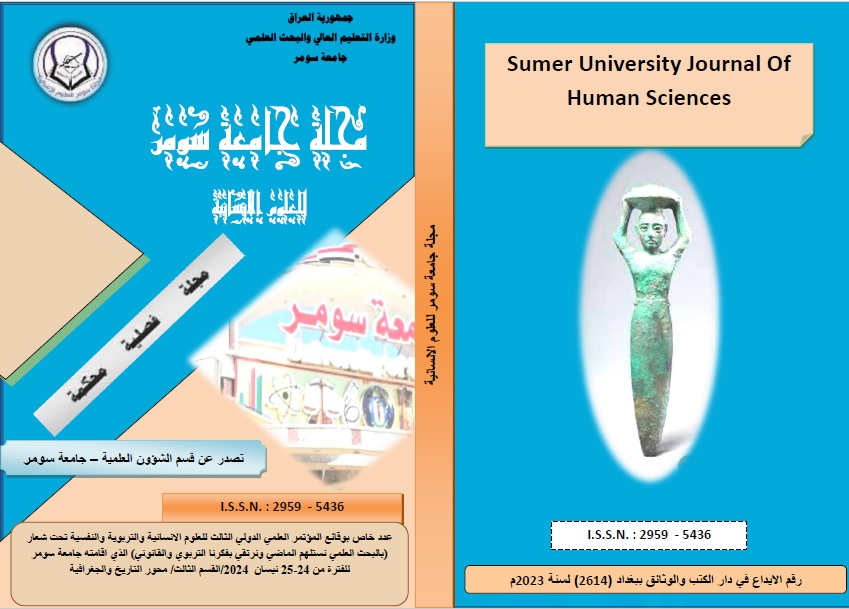Renewable energy sources and their role in achieving sustainable development
Keywords:
الطاقة المتجددة, التنمية المستدامةAbstract
Energy is a fundamental need among populations worldwide, with every country striving to provide and produce it, especially with the increasing per capita energy consumption. This has led countries to search for alternative energy sources that are renewable and non-deployable, as well as clean energy sources that contribute to reducing greenhouse gas emissions and are not environmentally polluting. Consequently, countries have been driven to utilize renewable energy sources. This study aims to clarify the concept of renewable energy sources, identify them, and determine their importance by understanding their advantages and disadvantages, as well as their role in achieving sustainable development through their impact on the environmental, economic, and social dimensions of sustainable development. Iraq serves as a case study to assess the potential for renewable energy provision, its current utilization, and the achievement of sustainable development if used as a substitute for fossil fuels in the country. The study reveals that Iraq has utilized some renewable energy sources, such as hydroelectric power. Additionally, other sources like solar energy, wind energy, and biomass energy could serve as alternative, renewable, and clean energy sources in Iraq.


